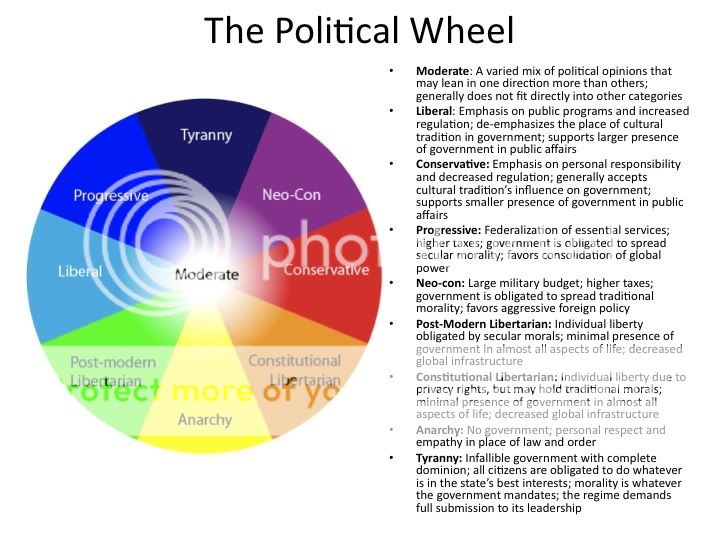Timstuff
Avenger
- Joined
- Jul 26, 2004
- Messages
- 19,914
- Reaction score
- 2
- Points
- 31
I have long felt that the "left and right" concept of the political spectrum is very naive and does not even come close to doing justice to what the world's political makeup looks like. There are a lot more than two directions that people go in with political opinions, however we seem to oversimplify them as being as simple as "yes" and "no." I myself am more in favor of the wheel model of the political spectrum, and I have made a handy illustration to demonstrate it:

Obviously it's not perfect, and it's influenced by my own political ideas, but I think that this is the general direction we should be approaching politics from as opposed to the simplistic idea that everything either fits into "liberal" or "conservative". As you can see, some ideas that we may consider "bad" such as anarchy and tyranny are not actually at the left or right, because ultimately both liberalism and conservatism lead to the same place depending on where you go with them.

Obviously it's not perfect, and it's influenced by my own political ideas, but I think that this is the general direction we should be approaching politics from as opposed to the simplistic idea that everything either fits into "liberal" or "conservative". As you can see, some ideas that we may consider "bad" such as anarchy and tyranny are not actually at the left or right, because ultimately both liberalism and conservatism lead to the same place depending on where you go with them.
